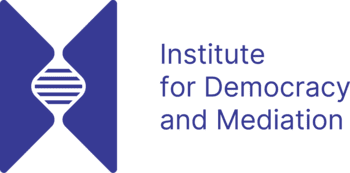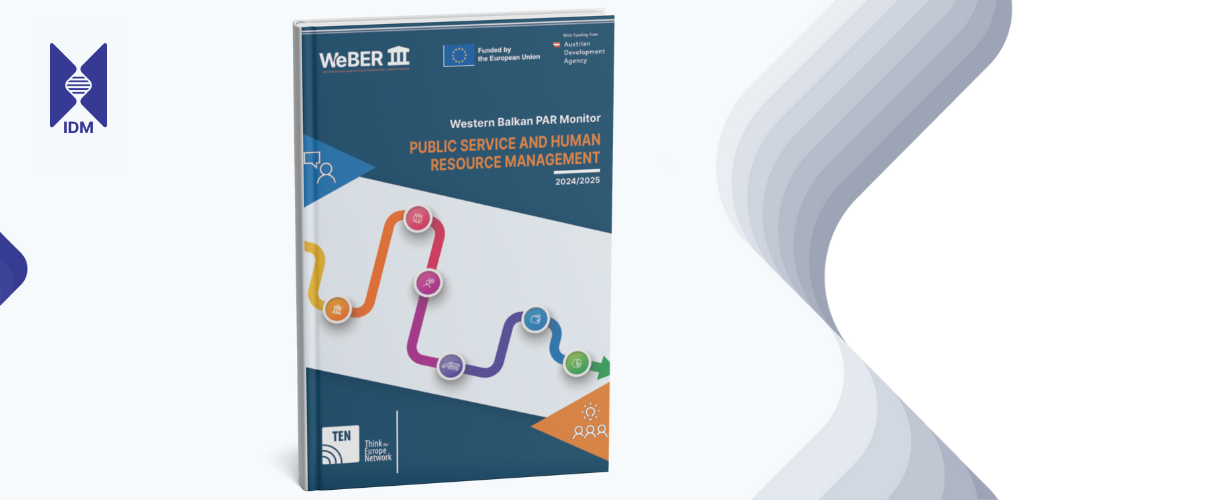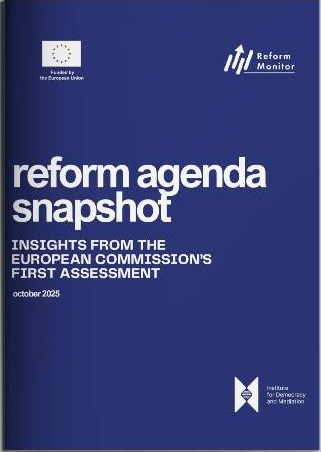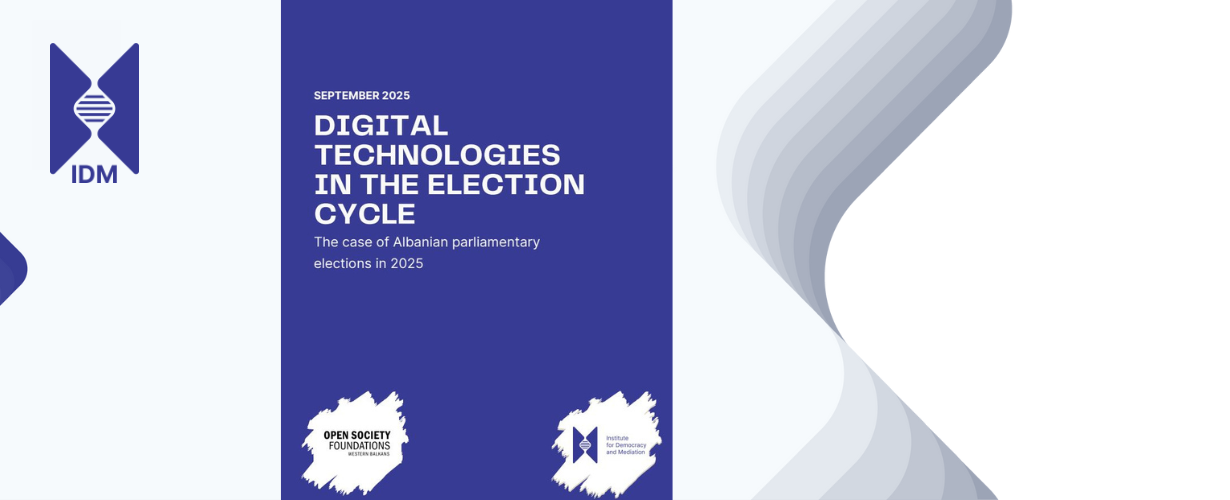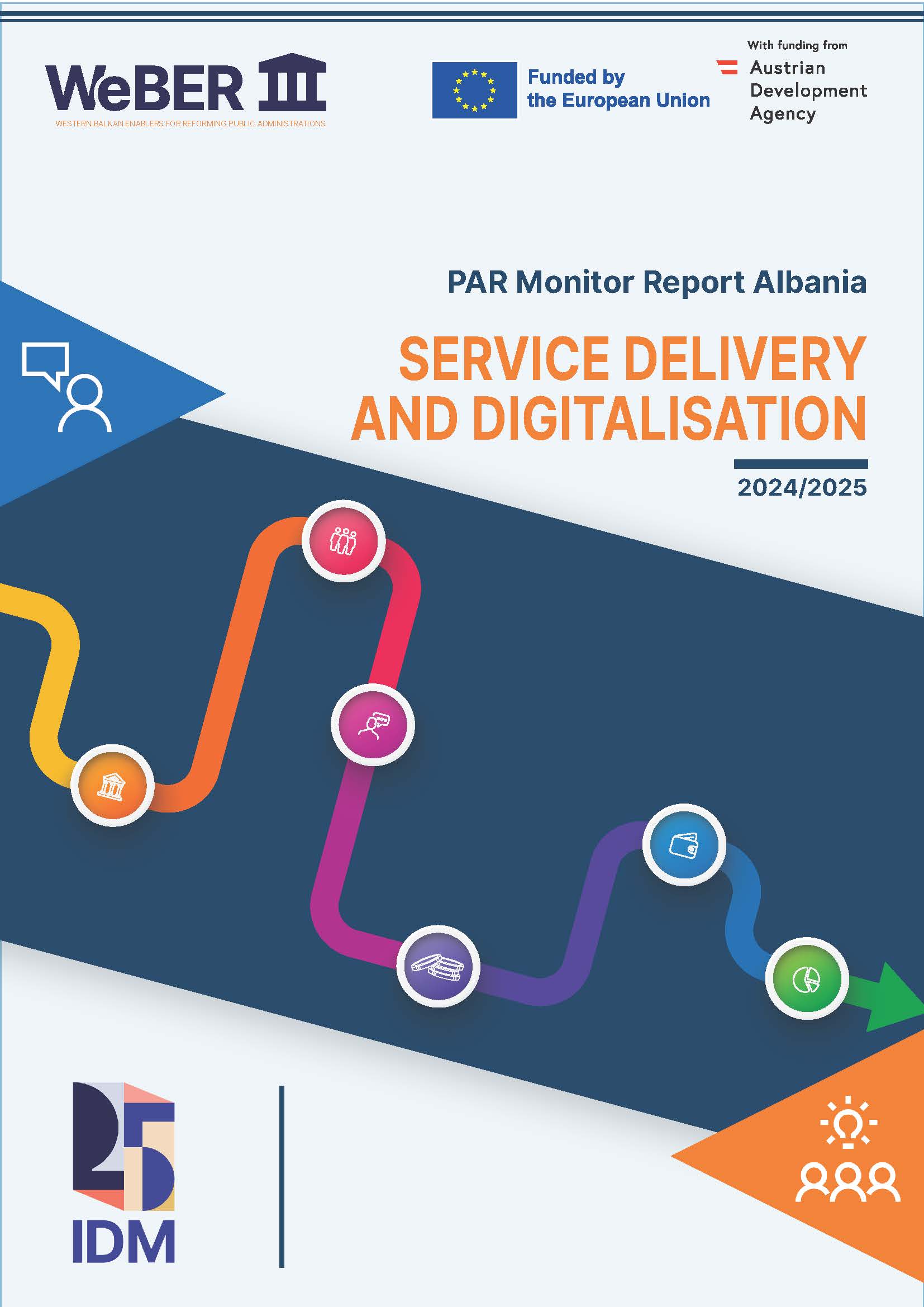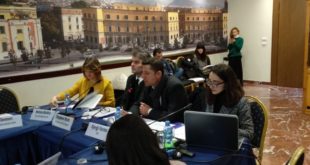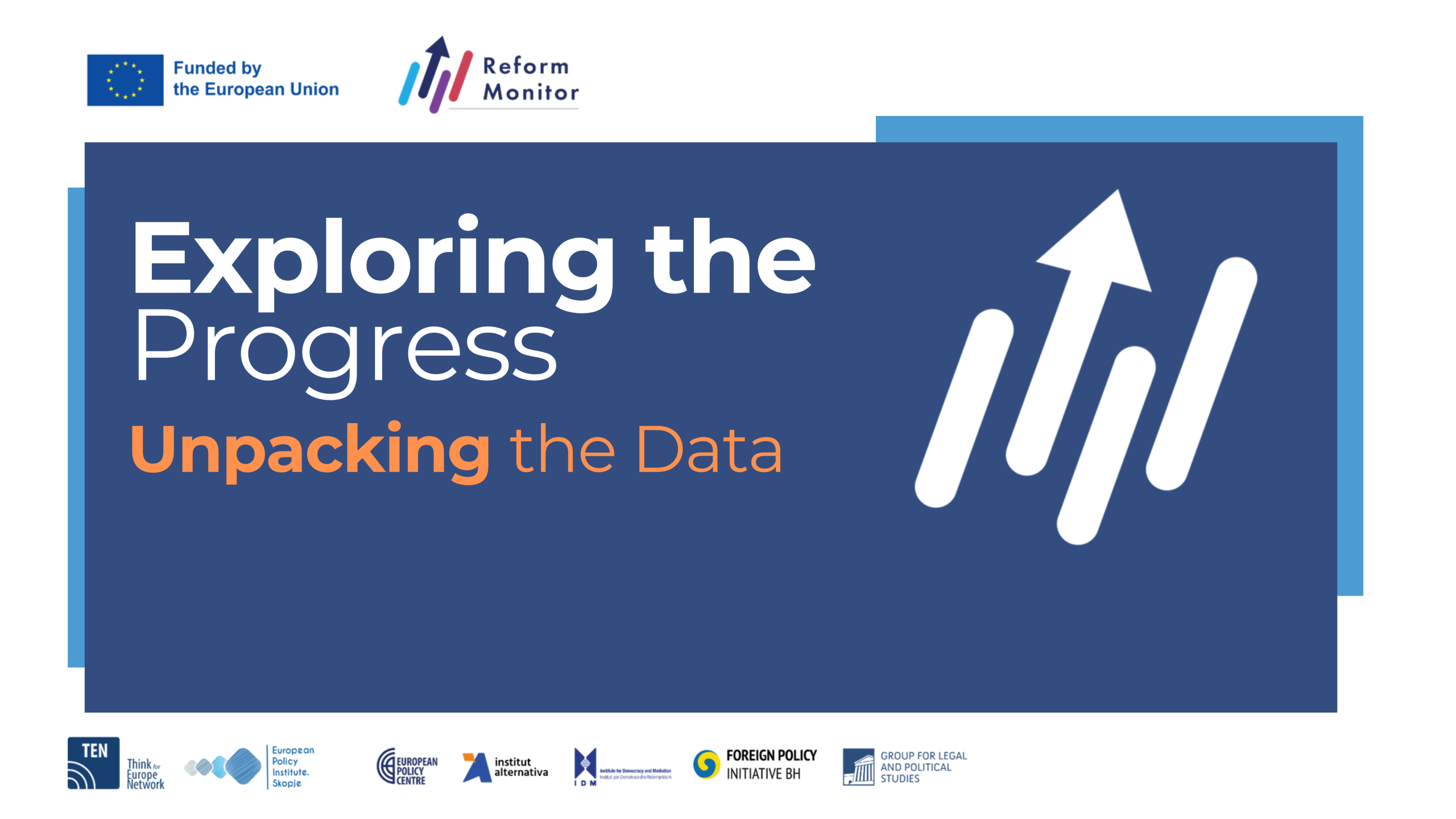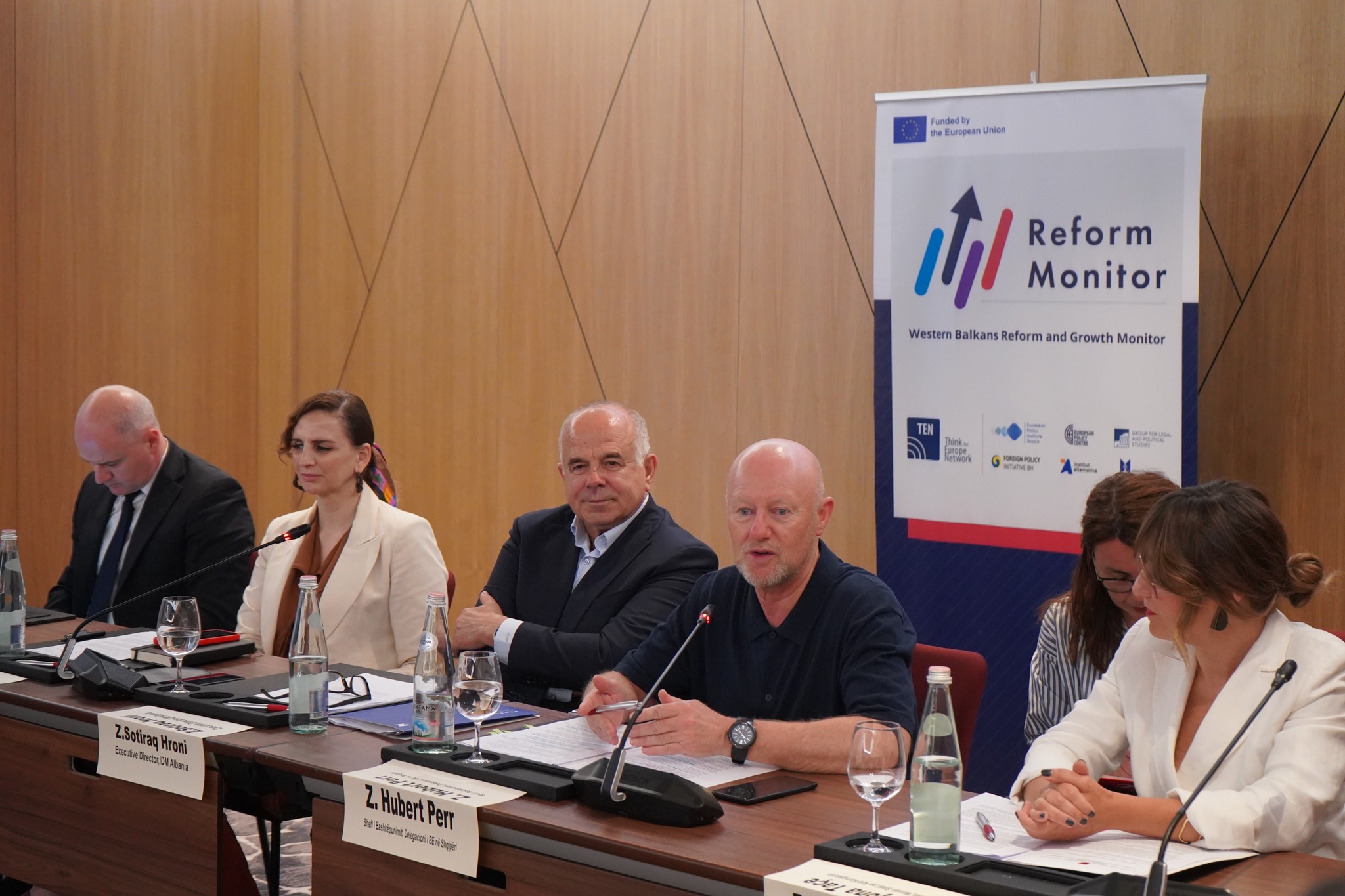Meaningful public consultations and external accountability are the critical challenges to PAR in Albania
As shown by the regional project WeBER civil society actors, with local knowledge of an administration’s functioning, can lead domestic advocacy efforts aimed at better administration. Moreover, an independent PAR monitoring and evidence-based dialogue with the government represent a good approach to achieve this goal.
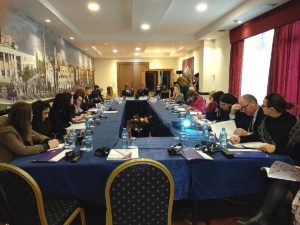
Tirana,11 December 2018 – IDM Albania presented the WeBER National PAR Monitor Report for Albania along with key insights as to how Albania stands in comparison to the other Western Balkan countries. WeBER’s monitoring approach, which is based on a common regional methodology, offers an independent, outside view of public administration reform, measured against the EU set of principles in this area – the Principles of public administration. The approach is built with an emphasis on the public-facing aspects of an administrations’ work, such as their transparency, openness, inclusiveness, equal opportunity and accountability to the public.
You can read more on the methodology here: http://www.par-monitor.org/pages/par-monitor-methodology.
The report can be found here: http://idmalbania.org/national-par-monitor-albania-2017-2018/
Aleka Papa, WeBER researcher for Albania, presented the PAR Monitor and the main results and recommendations. Across all six PAR fields scrutinised, Albania emerges as the most advanced case in the region.
Overall, Albania has acquired 244 out of a total of 581 points across all WeBER indicators, or 42%.
In terms of how it fares in the six administrative reform chapters, WeBER methodology finds that the Albania have accomplished the most in the area of service delivery, public service and human resource management and public
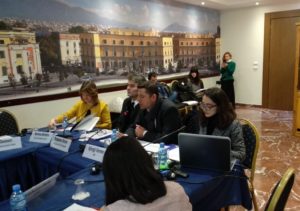
finance management (across the three segments that WeBER monitoring covers: budget transparency, public internal financial control and external audit). At the other end, the area of policy development and coordination emerges as the most critical PAR area based on the results of WeBER indicators. Problematic remain the issues of missing government performance information and critical shortcomings in achieving qualitative consultation processes that enable a meaningful participation of the public and civil society to the policy-making process.
Thereafter, Gjergji Vurmo, IDM Programme Director, moderated a discussion with representatives from the Department of Public Administration, Prime Minister Office, ADISA, Information and Data Protection Commissioner and civil society representatives.
This event was held under the scope of the regional project Western Balkans Enabling Project for Civil Society Monitoring of Public Administration Reform – WeBER – funded by the European Union and co-financed by the Kingdom of the Netherlands.
